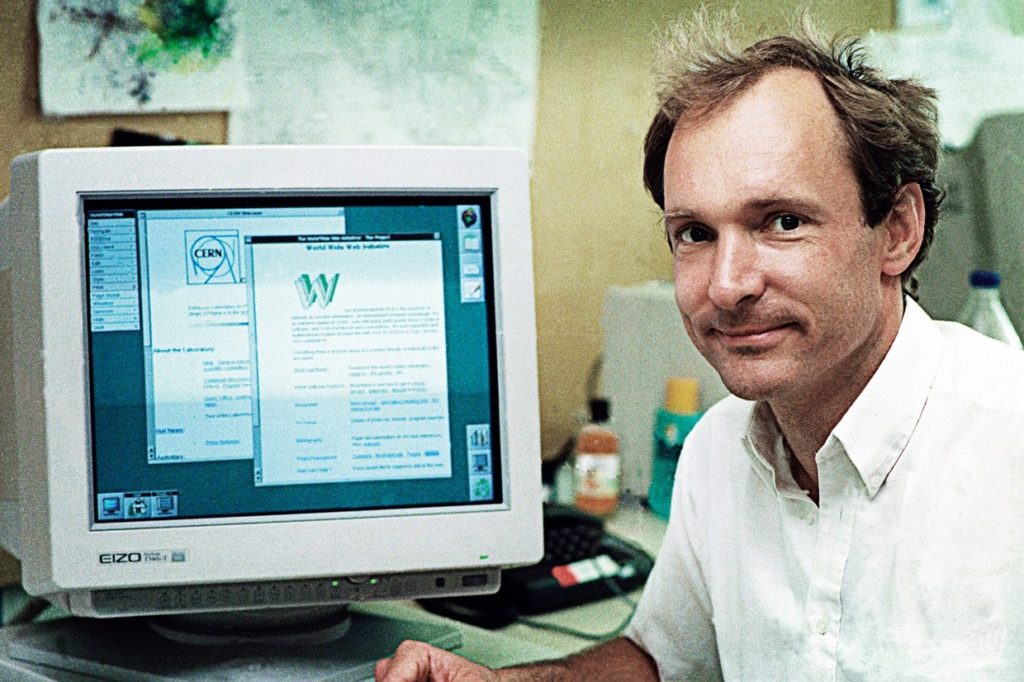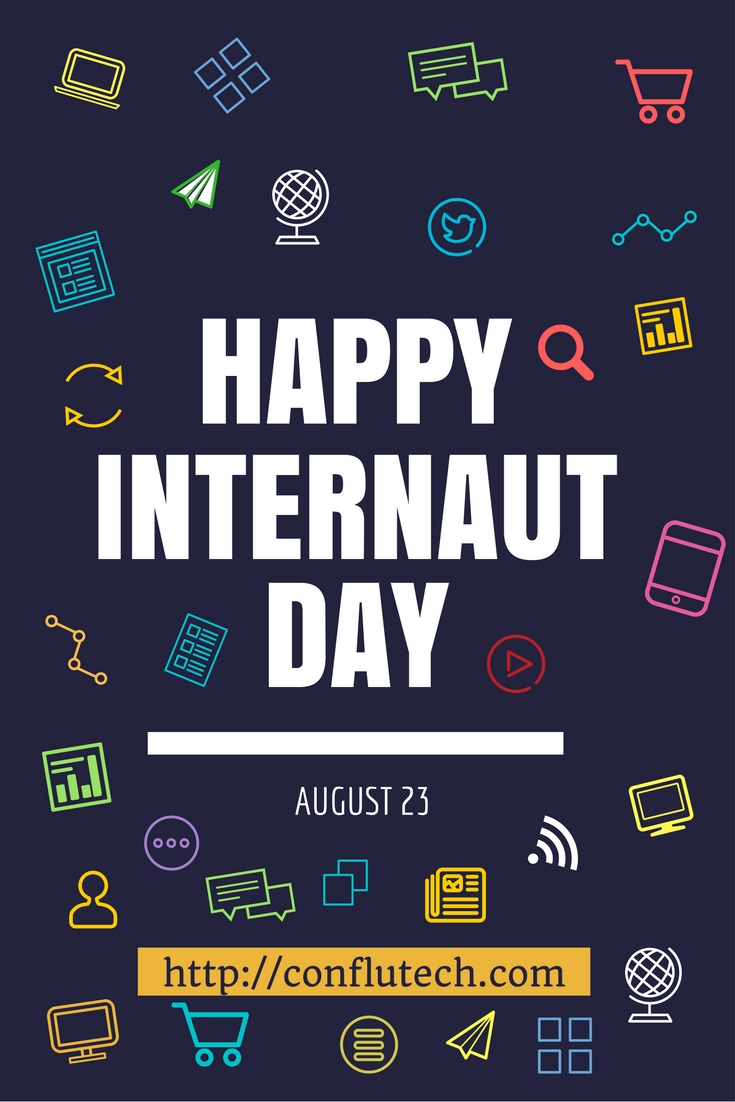Imagine a world where information flows as freely as a river, connecting minds across continents with just a click. On Internaut Day, we celebrate the digital pioneers who transformed how humanity communicates, collaborates, and creates. This special day commemorates the birth of internet users – the internauts – who first navigated the vast digital landscape and laid the groundwork for our hyper-connected global society.
When Tim Berners-Lee invented the World Wide Web in 1989, he probably didn’t realize he was sparking a revolution that would fundamentally reshape human interaction. From remote work to instant global communication, the internet has become the nervous system of our modern world. Internaut Day isn’t just about technology; it’s about celebrating human innovation and our remarkable ability to bridge distances through digital connections.

“The web is more a social creation than a technical one. I designed it for a social effect — to help people work together — and not as a technical toy.” – Tim Berners-Lee
Today, we tip our hats to those early digital explorers who ventured into uncharted online territories, transforming how we learn, work, and connect. Their curiosity and courage paved the way for billions of internet users worldwide, creating a global community that transcends geographical boundaries.
Celebrating Digital Pioneers
- Recognize the transformative power of digital connectivity
- Appreciate the vision of internet innovators
- Reflect on how technology has changed our lives
So here’s to the internauts – the brave souls who turned a complex network of computers into humanity’s most powerful communication platform!
The Origins of Internaut Day
Picture this: It’s August 23rd, 1991 – a date that would forever change the digital landscape. On this historic day, the World Wide Web was released to the public, marking a pivotal moment in technological evolution. The term “Internaut” – a clever blend of “Internet” and “Onauts” (explorers) – emerged to describe the brave digital pioneers who first navigated this revolutionary terrain.
Before becoming the global phenomenon we know today, the internet was a restricted network primarily used by academic and military institutions. Tim Berners-Lee, often called the “Father of the Web,” was working at CERN when he developed the first web browser and server, essentially creating the blueprint for our modern digital world.
“The original idea of the web was that it should be a collaborative space where people could share information,” Berners-Lee once explained, highlighting the deeply human motivation behind this technological breakthrough.
Key Milestones in Internet History
- 1969: ARPANET establishes first network connection
- 1983: TCP/IP protocol standardized
- 1991: World Wide Web becomes publicly available
- 1995: Commercial internet begins to boom
These early internauts weren’t just technologists – they were visionaries who saw the potential of a globally connected world long before most people could imagine it. Their curiosity and innovation transformed how humanity communicates, learns, and collaborates.
The web wasn’t built in a day, but through incremental innovations that changed everything.
Today, Internaut Day celebrates not just technology, but human potential – a reminder that with imagination and collaboration, we can connect, create, and transform our world in ways previously unimaginable.
Tim Berners-Lee: The Internet’s Architect
When we talk about internet pioneers, one name stands out like a beacon of innovation: Tim Berners-Lee. This British computer scientist didn’t just create a technology; he essentially rewrote the rules of human communication. Born in London in 1955, Berners-Lee was always destined to think differently.
While working at CERN in 1989, he envisioned something revolutionary – a system where information could be shared seamlessly across different computers. His breakthrough? The World Wide Web. But here’s the kicker – he didn’t patent his invention. Instead, he made it freely available, believing that open access was crucial for global progress.
“If I had kept it proprietary, it would not have taken off. The web’s success depends on everyone being able to use it freely,” Berners-Lee once remarked, embodying the spirit of digital democratization.
The Genius Behind the Invention
- Developed the first web browser and server
- Created HTML (HyperText Markup Language)
- Established the first website in 1991
- Founded the World Wide Web Consortium (W3C) to maintain web standards
What makes Berners-Lee’s story fascinating is how he transformed a complex technical challenge into a tool for global connection. Berners-Lee understood that technology is most powerful when it serves human needs.
His vision went beyond mere technical innovation. He saw the internet as a platform for collaboration, learning, and breaking down global barriers. Today, with over 4.9 billion internet users worldwide, his dream of a connected world has become a stunning reality.
Internaut Day isn’t just about celebrating technology – it’s about honoring visionaries like Berners-Lee who saw the potential of digital connectivity long before it became mainstream. Their legacy reminds us that true innovation is about solving human problems, not just creating cool gadgets.
The Impact of His Vision
Tim Berners-Lee’s vision wasn’t just about creating a technological marvel; it was about fundamentally transforming human potential. By designing the World Wide Web as an open, accessible platform, he unleashed a digital revolution that would reshape every aspect of our lives.
Consider this: before the web, information was locked away in siloed institutions. Berners-Lee’s creation democratized knowledge, giving everyone with an internet connection a passport to global learning. From a student in rural India accessing MIT lectures to an entrepreneur in Brazil connecting with investors worldwide, the internet became the great equalizer.
“The power of the web is its universality. Access by everyone regardless of disability is an essential aspect.” – Tim Berners-Lee
Transformative Impacts
- Revolutionized global communication
- Created unprecedented economic opportunities
- Enabled instant cross-border collaboration
- Empowered individual voices and movements
Berners-Lee understood that technology’s true power lies in its ability to bring people together. His web wasn’t just a network of computers, but a network of human potential.
The economic implications have been staggering. E-commerce, digital marketing, remote work – entire industries have emerged from his foundational work. According to recent statistics, a significant portion of U.S. commerce now happens online, demonstrating the transformative economic impact of the internet.
But beyond economics, Berners-Lee’s vision was profoundly humanistic. He believed technology should serve humanity, not control it. By making the web an open platform, he ensured that innovation would be a collaborative, global endeavor.
Today, as we celebrate Internaut Day, we’re not just commemorating a technological milestone. We’re honoring a vision of human potential – a world where knowledge knows no boundaries, where collaboration transcends geographical limits, and where every individual has the power to connect, learn, and create.
Celebrating Internet Pioneers
When we talk about internet pioneers, we’re not just discussing tech geeks in lab coats, but visionaries who fundamentally reimagined human connection. These digital trailblazers transformed what seemed impossible into our everyday reality, turning complex computer networks into a global communication platform that now connects billions.
Unsung Heroes of Digital Revolution
- Vint Cerf & Bob Kahn: Fathers of TCP/IP protocols
- Leonard Kleinrock: Pioneered packet switching technology
- Ray Tomlinson: Inventor of email and the “@” symbol
- Vinton Gray Cerf: Helped develop internet architecture
These innovators weren’t just coding – they were architects of a digital future. These pioneers understood that technology is most powerful when it serves human connection.
“The internet is the first thing that humanity has built that humanity doesn’t understand, the largest experiment in anarchy that we have ever had.” – Eric Schmidt, Former Google CEO
Consider Ray Tomlinson, who in 1971 sent the first network email. By introducing the “@” symbol, he didn’t just create a technical solution – he laid the groundwork for how modern communication would evolve. Similarly, Vint Cerf and Bob Kahn’s work on TCP/IP protocols became the fundamental language that allows different computer networks to communicate seamlessly.
Beyond Technology: A Human Story
- Democratized global information access
- Created unprecedented collaboration opportunities
- Broke down geographical communication barriers
- Empowered individual voices worldwide
The average American now spends over 7 hours per day consuming digital media, a testament to these pioneers’ transformative work. Their vision wasn’t just about creating technology, but about expanding human potential, much like how great content connects people.
As we celebrate Internaut Day, we’re not just remembering technological milestones – we’re honoring human creativity, curiosity, and the relentless spirit of innovation that continues to reshape our world, one digital breakthrough at a time.
Sources and References :










